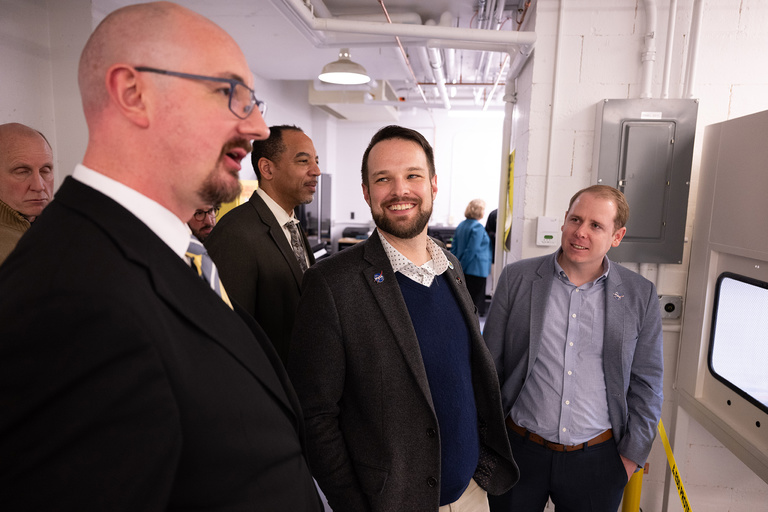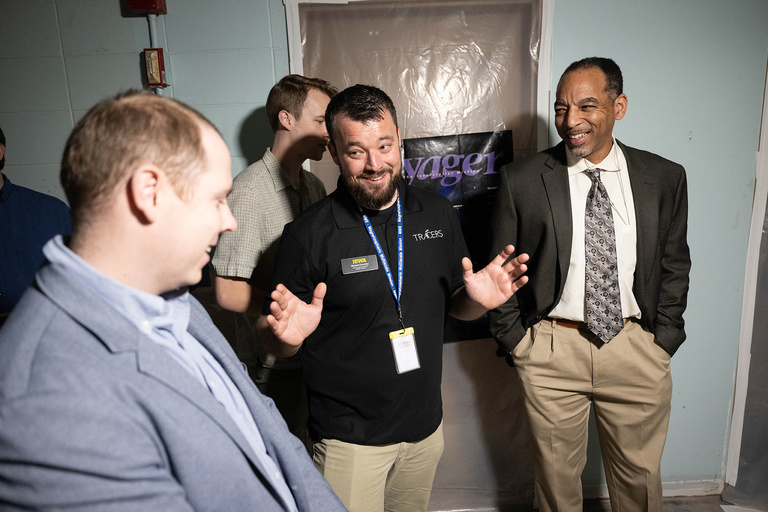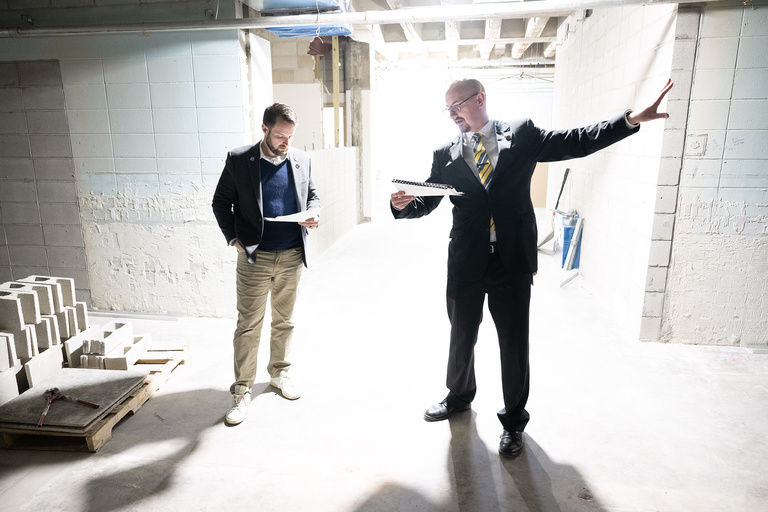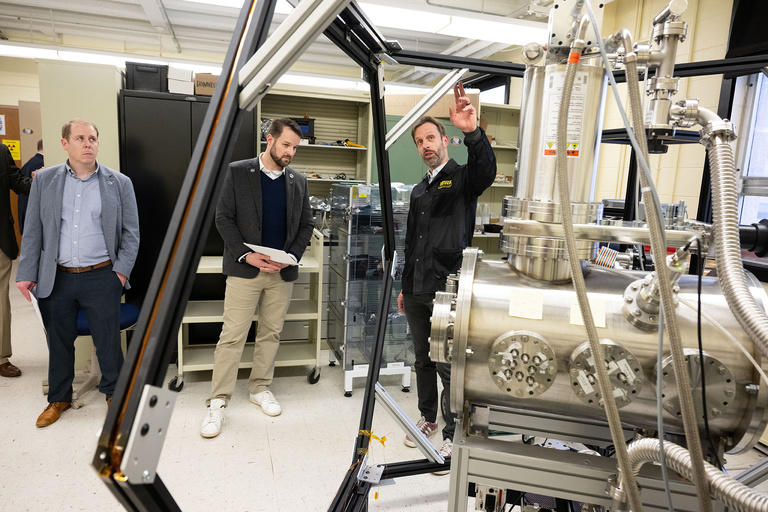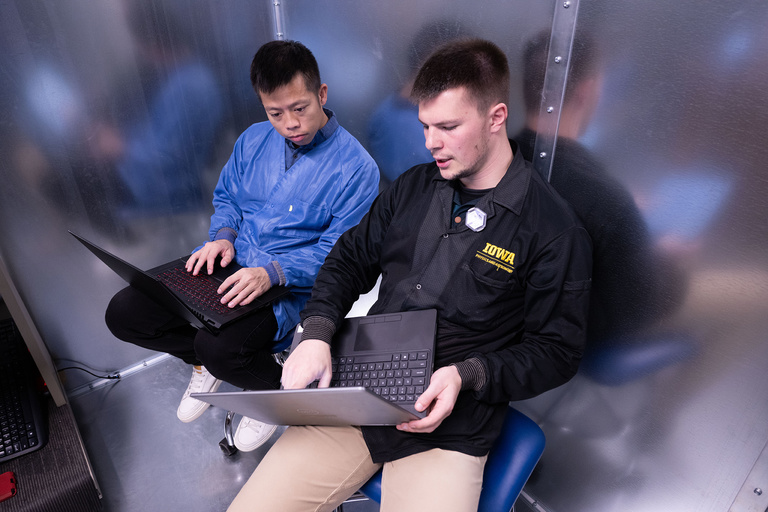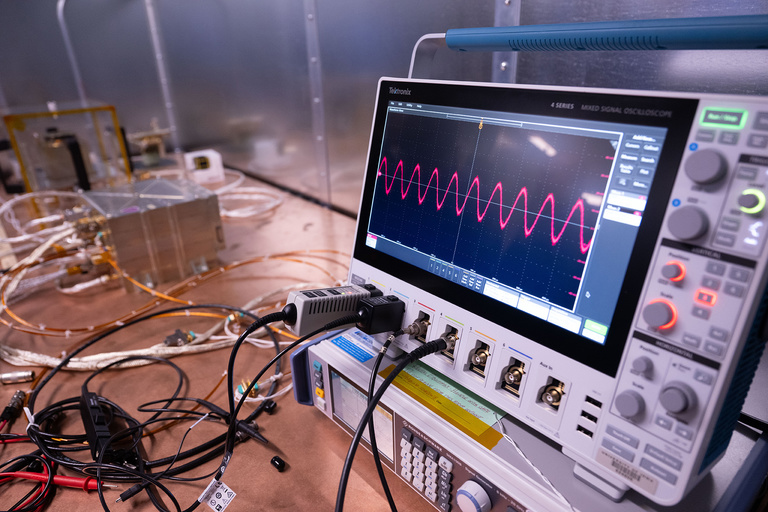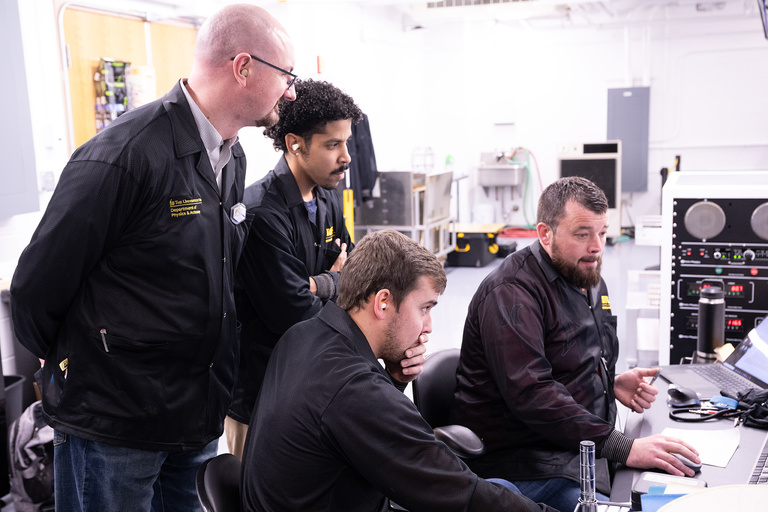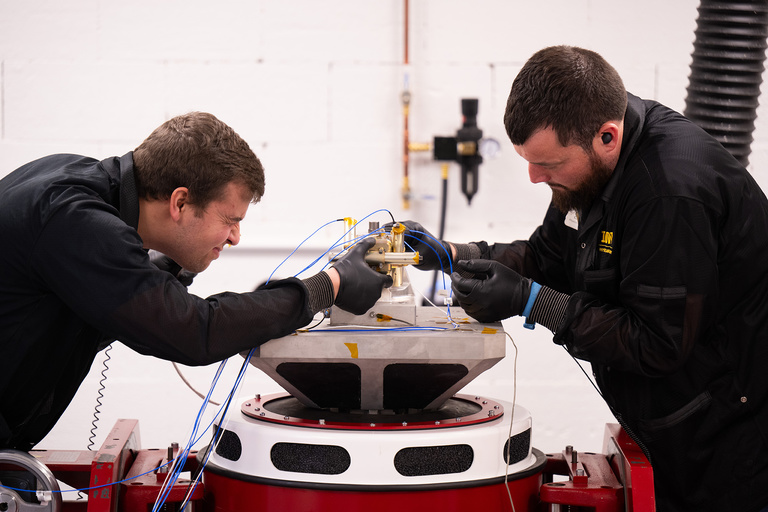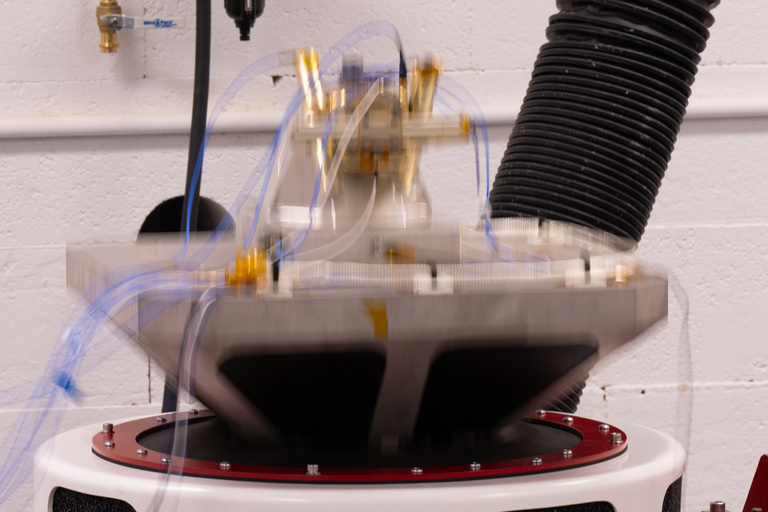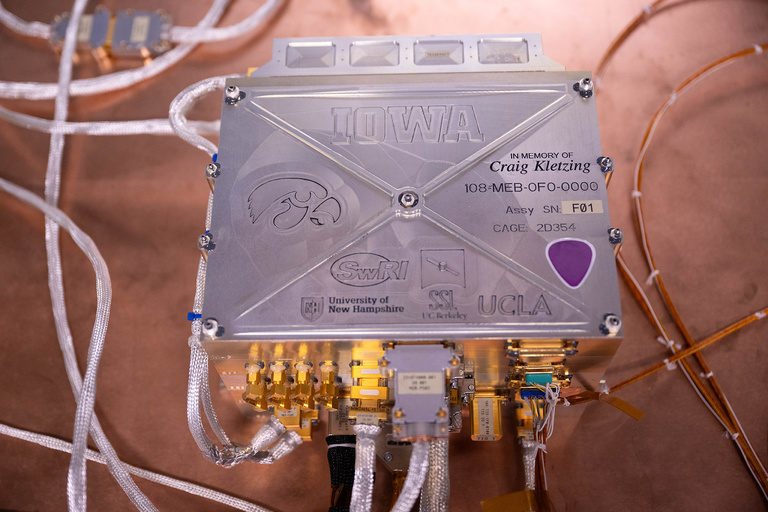NASA delegates visited the University of Iowa on March 7-8 to learn about the largest externally funded research project in institutional history.
The NASA group included Joseph Westlake, the new head of the agency’s heliophysics division, which oversees missions involving the Earth and sun. The heliophysics portfolio includes Tandem Reconnection and Cusp Electrodynamics Reconnaissance Satellites (TRACERS), the $115 million mission being led by Iowa. TRACERS will study interactions between the sun and the Earth that spawn the Northern and Southern lights. Researchers at Iowa and other participating institutions have been designing, building, and assembling the instruments, hardware, and software in preparation for a scheduled launch in April 2025.
The UI scientists, including David Miles, associate professor in the Department of Physics and Astronomy and TRACERS principal investigator, gave a progress report about the five instruments that will determine how powerful winds from the sun are able to cleave through the Earth’s magnetic field and potentially affect satellites, telecommunications, and energy grids.
“I’m excited for this mission,” Westlake said.
TRACERS is managed by NASA’s Explorers Program Office and is part of the Heliophysics Division, which studies how the sun affects space and the space environment around planets. With an eye toward potential involvement in future near-Earth and space forays, the Iowa group led the NASA representatives on a tour of the top floor at Van Allen Hall, which will be transformed into instrument design and build spaces.
“We are creating a single, unified space flight laboratory,” Miles told the NASA officials.
Iowa President Barbara Wilson attended a working lunch and thanked the NASA officials for visiting campus.
“This is an amazing part of the research we do,” Wilson said. “We talk about space physics all the time, and the legacy and roots we have here.”
That legacy includes Craig Kletzing, the renowned Iowa physics professor who conceived the mission, won the funding, and led TRACERS until his death in August 2023. A guitar pick has been embedded in the main electronics box to honor Kletzing’s passion for playing music.


